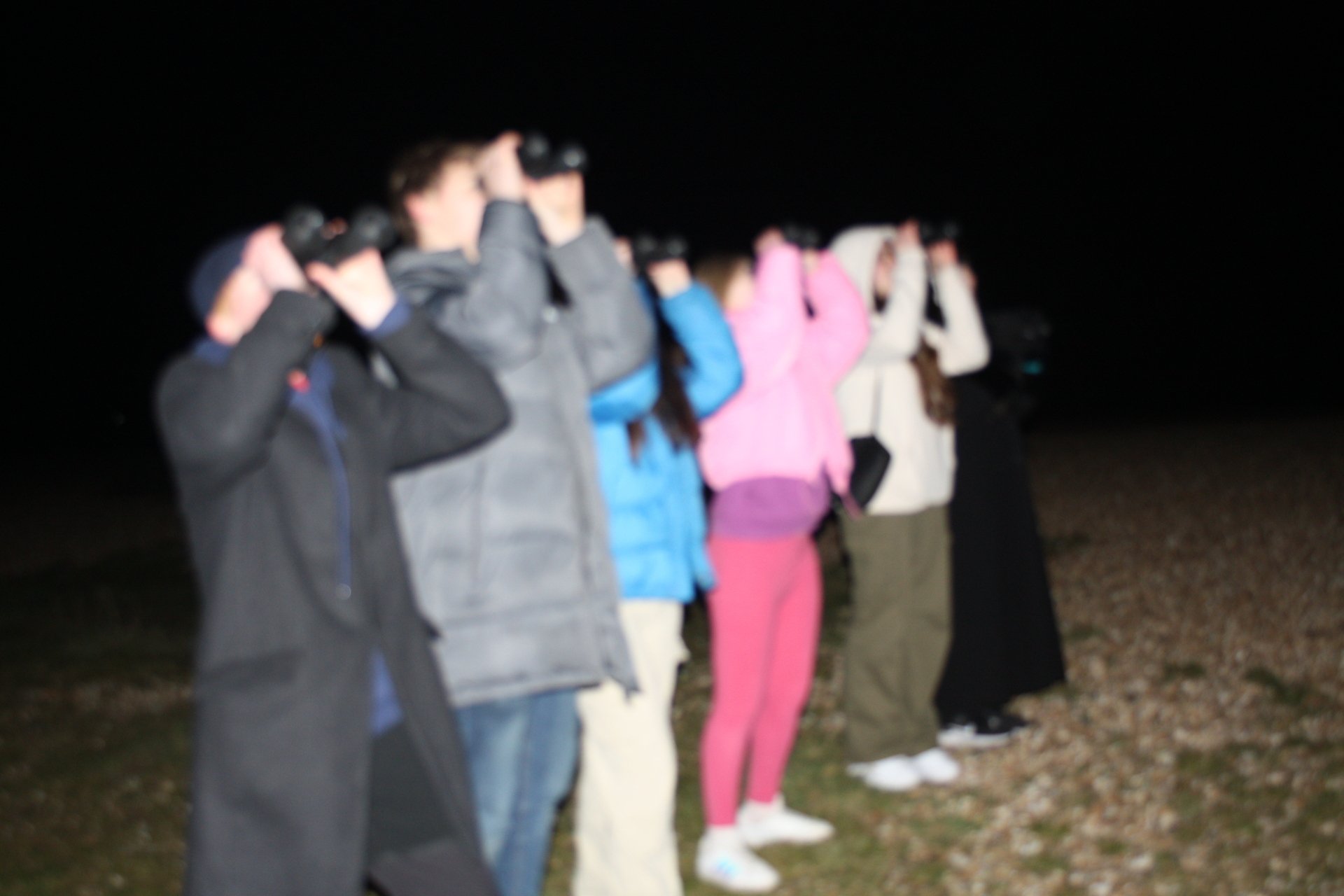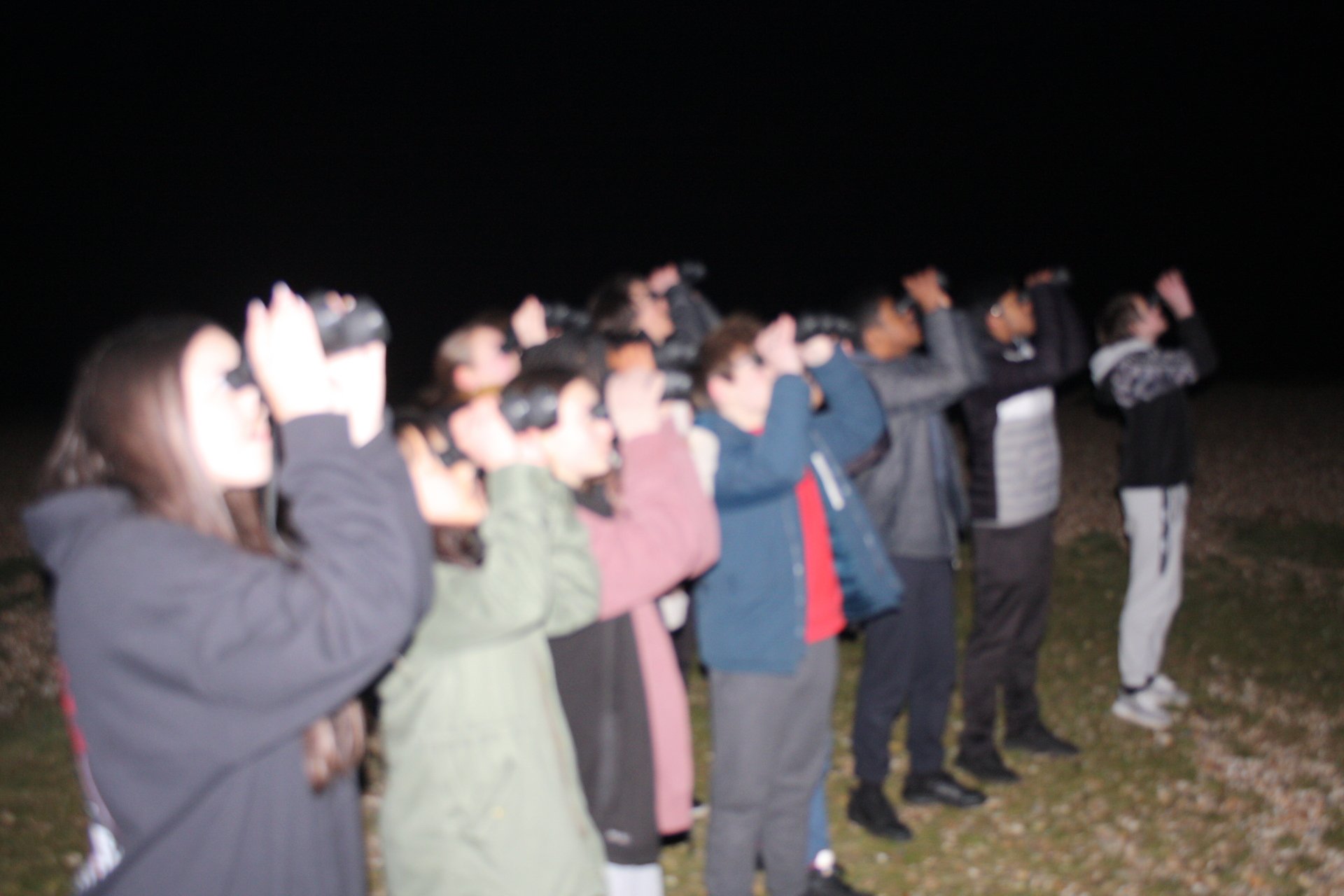 |
 |
 |
Astronomy
Approach to Teaching
Astronomy is an exciting and unique subject that St. Edmund’s is proud to be able to deliver. Astronomy lessons typically involve exploration of a subject through a range of objects/media with students making notes based on succinct whiteboard presentations. Each lesson students typically demonstrate understanding through end of lesson questioning. Many Astronomy lessons are delivered in a specially prepared classroom that can be blacked out so that detailed exploration of the projected night sky and astronomical observations can take place. Students are often given items to explore or engage with to help with understanding of the more complicated astronomical concepts.
During the Astronomy course students will meet up at night to perform observations of the night sky, practising skills learnt in lesson and to consolidate their understanding of meteors, constellations and asterisms.
Key Stage 3 content (Year 7-9)
Astronomy is not currently available for KS3 pupils.
Key Stage 4 content / exam board / spec (Year 10-11)
Saint Edmund’s follow the GCSE Edexcel Astronomy course.
Exam board: Edexcel
Specification: 1AS0
Tiers of entry: Untiered
Exam: 2 papers, each 50% of total grade.
The overview of topics taught, beginning in Year 10, can be found below:
|
Topic 1: Planet Earth |
|
Topic 6: Celestial observation |
|
Topic 2: The Lunar Disc |
|
Topic 9: Exploring the Moon |
|
Topic 11: Exploring the Solar System |
|
Topic 5: Solar System observation |
|
Topic 7: Early models of the Solar System |
|
Topic 8: Planetary motion and gravity |
|
Topic 10: Solar astronomy |
|
Topic 3: The Earth-Moon-Sun system |
|
Topic 4: Time and the Earth-Moon-Sun cycles |
|
Topic 12: Formation of planetary systems |
|
Topic 13: Exploring starlight |
|
Topic 14: Stellar evolution |
|
Topic 15: Our place in the Galaxy |
|
Topic 16: Cosmology |
 |
 |
|























